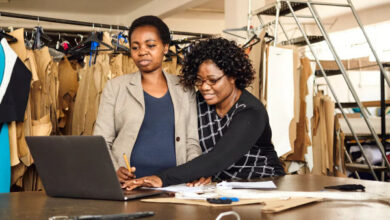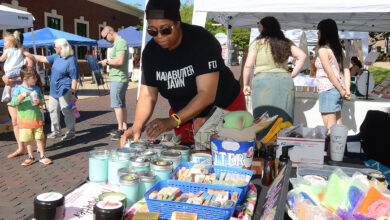How Serwah Attafuah Balances Digital Art, Music and Entrepreneurship

Serwah’s work isn’t just confined to the visual—she’s also a prolific musician. She fronts hardcore four-piece NASHO and hardstyle group MANA and plays guitar for death metal group DISPOSSESSED (with whom she scored a nomination in the 2019 Australian Music Prize). Currently, she’s working out of the esteemed Parramatta Artists Studio and taking on projects with the Biennale of Sydney and Melbourne’s ACMI.
But despite her larger-than-life accomplishments and artwork, Serwah is still proudly Western Sydney to her core. As she tells Complex AU, a short-lived stint in Sydney’s inner west reaffirmed her preference for being close to family in her hometown.
As part of the Chivas Regal Pioneers Program, Serwah hosted an exclusive workshop in Melbourne to help some of the country’s top young creatives follow in her footsteps and turn their passion into a living. Complex AU caught up with her at the event to talk about her TED talk, her favourite work to date, and Western Sydney’s influence on her work.
In your TED talk, you spoke about making art and music, and how you initially felt that your music was political, but your art wasn’t. But then you came to this realisation, and the exact quote is: “Having to create a digital space to feel safe was an unintentional political statement in and of itself.” Can you speak a little bit more about that?
Digital art was sort of a sanctuary; it was something that I could keep private. It didn’t have to be shared—it wasn’t—unless I wanted it to be. Whereas painting, people would be in and out of my studio and be like, “What’s this? What’s that? What are you doing here?” You know?
During that transition period, going from painting to digital art, I founded DISPOSSESSED and was in a bunch of quite politically charged bands. Having politics in your art form is pretty great; it’s really moving, and I think it’s super important.
But having that sanctuary to, after a show, just go on the computer and make something in the Metaverse gave me a sense of peace. I distanced politics from digital art for a long time, but over time realised that having to have this digital safe space really spoke to the societal conditions I was living in as a woman—as a black woman—in this crazy world.



